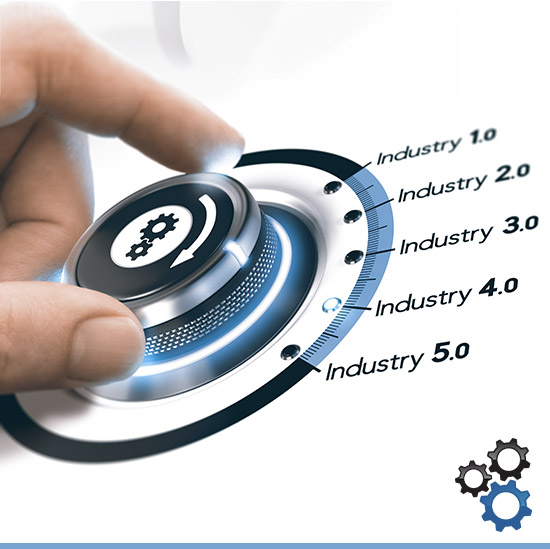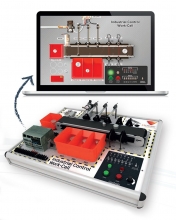What is Industry 4.0?
Navigating the Future of Manufacturing

In the realm of modern industry and technology, the term "Industry 4.0" has become more than just a buzzword; it's a defining concept that signals a significant shift in the way we approach manufacturing and automation. But to truly grasp the essence of Industry 4.0 and its implications, it's essential to embark on a journey through its historical context, tracing back to the origins of industrial revolutions. By understanding where we've come from, we can better envision where we are headed in this digital age.
The term "industrial revolution" conjures images of dramatic changes in society, economy, and technology. Each revolution has left an indelible mark on human history, reshaping the way we live, work, and interact with the world around us. The evolution from one industrial era to the next has been characterized by groundbreaking innovations, from steam power to artificial intelligence.
The Four Industrial Revolutions
The First Industrial Revolution marked the transition from agrarian societies to industrialized ones. It was characterized by the mechanization of production, powered by steam engines and water wheels. Factories emerged, and textile, iron, and coal industries thrived.
The Second Industrial Revolution introduced significant innovations like electricity and the internal combustion engine. Mass production, assembly lines, and the advent of the automobile industry symbolized this era.
The Third Industrial Revolution, also known as the Digital Revolution, brought about the rise of electronics, computers, and automation. The internet and information technology played pivotal roles, reshaping industries, and laying the foundation for globalization.
Industry 4.0 represents the ongoing digital transformation of industry and manufacturing. It's characterized by the integration of cyber-physical systems, the Internet of Things (IoT), big data, artificial intelligence (AI), and machine learning into production processes. This revolution brings a profound level of connectivity, data analysis, and automation.
Key Components of Industry 4.0
CPS refers to the integration of physical and digital elements in manufacturing processes. Machines, products, and systems are interconnected, enabling real-time data exchange and decision-making.
The Internet of Things involves embedding sensors in machinery, products, and infrastructure to collect and transmit data. This data is then used for monitoring, optimization, and predictive maintenance.
Industry 4.0 leverages vast amounts of data generated by IoT devices. Big data analytics and machine learning algorithms process this data to gain insights, enhance efficiency, and make informed decisions.
AI technologies, such as machine learning and robotics, play a pivotal role in automating tasks, optimizing processes, and improving quality control.
Industry 4.0 promotes decentralized decision-making, where systems and machines have the autonomy to respond to changing conditions without human intervention.
The Future of Industry 4.0
Industry 4.0 represents a paradigm shift in manufacturing, enabling greater flexibility, efficiency, and responsiveness to customer needs. Companies that embrace this revolution can reduce production costs, minimize downtime, improve product quality, and enhance sustainability.
As we move forward, the lines between physical and digital systems will continue to blur. Advances in AI and machine learning will lead to more autonomous and adaptive manufacturing processes. Additionally, the use of 5G technology will further enhance connectivity, facilitating real-time communication and remote monitoring.
Conclusion
In conclusion, Industry 4.0 is not merely another industrial revolution; it's a transformational journey that integrates the physical and digital worlds to create a smarter, more efficient, and more interconnected manufacturing ecosystem. Embracing this change is essential for businesses looking to stay competitive and thrive in the evolving landscape of the 21st century.





